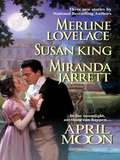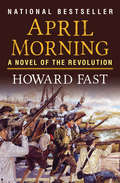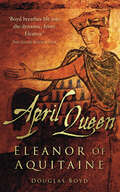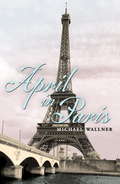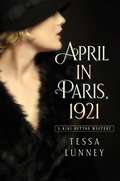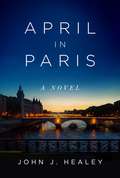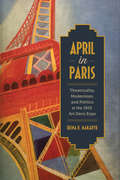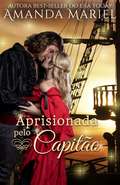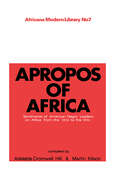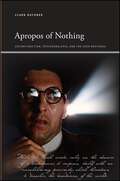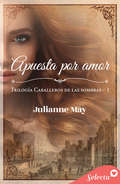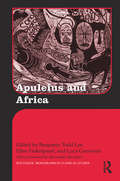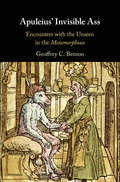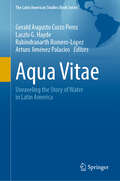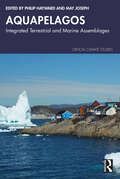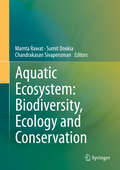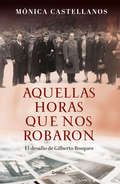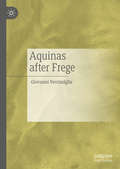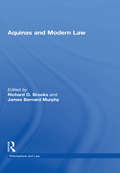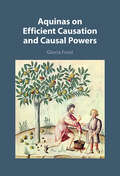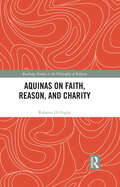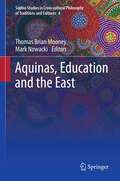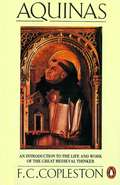- Table View
- List View
April Moon
by Miranda Jarrett Merline Lovelace Susan KingSAILOR'S MOON by Merline LovelaceWhile traveling to her unwanted wedding to a brutal nobleman, the notorious Lady Elizabeth Stanton was taken captive by Captain Richard Blake, an all-too-appealing American with vengeance on his mind! But the trouble was that Elizabeth soon wanted nothing more than to stay his prisoner....WHITE FIRE by Susan KingOn a moonlit Scottish coast, Jenny Colvin searched for proof to halt her rogue father's hanging. Stopped by the mysterious and brooding Sir Simon Lockhart, she begged for his help, aware that only this once daring smuggler could save her father from the gallows.THE DEVIL'S OWN MOON by Miranda JarrettOn a madcap wager, Harry, the fast-living Earl of Atherwall, assumed the guise of a reckless highwayman and unknowingly ordered Sophie Potts, his lost love, to stand and deliver. When Sophie refused, Harry had no choice but to kidnap her instead!
April Morning: A Novel
by Howard FastHoward Fast&’s bestselling coming-of-age novel about one boy&’s introduction to the horrors of war amid the brutal first battle of the American Revolution On April 19, 1775, musket shots ring out over Lexington, Massachusetts. As the sun rises over the battlefield, fifteen-year-old Adam Cooper stands among the outmatched patriots, facing a line of British troops. Determined to defend his home and prove his worth to his disapproving father, Cooper is about to embark on the most significant day of his life. The Battle of Lexington and Concord will be the starting point of the American Revolution—and when Cooper becomes a man. Sweeping in scope and masterful in execution, April Morning is a classic of American literature and an unforgettable story of one community&’s fateful struggle for freedom. This ebook features an illustrated biography of Howard Fast including rare photos from the author&’s estate.
April Queen: Eleanor of Aquitaine
by Douglas BoydEleanor of Aquitaine was the only person ever to sit on the thrones of both France and England. In this account of the turbulent adventures of the extraordinary mother of Richard the Lionheart and King John, author Douglas Boyd takes us into the heart and mind of the woman who changed the shape of Europe for 300 years by marrying Henry of Anjou to make him England's Henry II. Brought up in the comfort- and culture-loving Mediterranean civilisation of southern France, she was a European with a continent-wide vision and a peculiarly 'modern' woman who rejected the subordinate female role decreed by the Church. In this biography, using French, Old French, Latin and Occitan sources, Douglas Boyd lays bare Eleanor's relationship and vividly brings her world to life.
April in Paris
by Michael WallnerWhen people on Paris's bustling streets look at Michael Roth, they see little more than a Parisian student, a quietly spoken young man with a book under his arm, handsome but guarded. What they do not realize is that he is carrying a painful secret, one that he cannot even reveal to the woman he loves. For Michael is no ordinary Frenchman but a German. He has been sent to Paris to assist the Nazis in dealing with Resistance fighters. Desperate to escape his daily life, he steals into the world of the oppressed Parisians, and into the path of Chantal. But as Michael falls for the bookseller's beautiful daughter, he discovers that a person's past always catches up with them. Soon he will be forced to make the ultimate sacrifice and choose between his country, his life and his destiny. Daring, romantic and of exceptional quality, April in Paris is an extraordinary love story which will stay with you long after its final pages.
April in Paris, 1921: A Kiki Button Mystery (Kiki Button Ser. #01)
by Tessa LunneyKiki Button—war veteran, party girl, detective, and spy—finds that she can’t outrun her past exploits, even in the glittering world of Jazz Age Paris. Paris in 1921 is the city of freedom, where hatless and footloose Kiki Button can drink champagne and dance until dawn. She works as a gossip columnist, partying with the rich and famous, the bohemian and strange, using every moment to create a new woman from the ashes of her war-worn self. While on the modelling dais, Picasso gives her a job: to find his wife’s portrait, which has gone mysteriously missing. That same night, her spymaster from the war contacts her—she has to find a double agent or face jail. Through parties, whisky, and seductive informants, Kiki uses her knowledge of Paris from the Great War to connect the clues. Set over the course of one springtime week, April in Paris, 1921 is a mystery that combines artistic gossip with interwar political history through witty banter, steamy scenes, and fast action.
April in Paris: A Novel
by John J. HealeyA transatlantic novel for fans of A.S. Byatt and Don DeLillo. Shaun is an American professor enjoying his sabbatical—and his substantial inheritance—in Paris, until one night when he is startled awake by a nightmare. His attempts to decipher the dream lead him to a New York murder trial that occurred in 1916 in the Bronx. Upon discovering that the murder took place in the basement of his father's childhood apartment building and having no recollection of being told about it in his boyhood, Shaun explores the possibility of a repressed memory. His amateur, but psychologically astute, investigation coincides with the beginning of his first serious romance since the death of his wife five years earlier. By the time he uncovers the shocking truth behind the case, he has traveled to Spain, New York, Sweden, and back to France. While deciphering a murder that hits close to home, John J. Healey offers an intimate tale of love, family, and the complexities of the human heart.
April in Paris: Theatricality, Modernism, and Politics at the 1925 Art Deco Expo
by Irena MakarykAttracting over fifteen million visitors, the 1925 Paris Expo had an ambitious goal to create a new modernist style which would reflect the great scientific, industrial, and technological advances that produced a new spirit known as "modern." In April in Paris, author Irena R. Makaryk explores the theatre arts’ vital cultural and political impact at this celebrated international exhibition. Drawing extensively from unexplored archival documents from France, Austria, and North America, April in Paris is the first major study to focus on theatre arts at the 1925 Paris Expo and the audacious Soviet contributions to this fair. Turning a spotlight on the uses and representations of theatricalized spaces, Makaryk analyses their political challenge at a time when relations between the West and the USSR were rife with tension. Copiously illustrated with beautiful colour and black and white illustrations, this book elucidates the complex role of the international fair as a catalyst for spirited cultural debate and for aesthetic change.
Aprisionada pelo Capitão
by Éli Assunção Amanda MarielA senhorita Prudence Drake não quer nada mais que voltar para a América e juntar o que sobrou da sua vida. Depois de ter sido refém no Black Dawn e testemunhar o assassinato do pai, a última coisa que desejava é se encontrar nas mãos de outro pirata – não importa que ele seja lindo e honrado. O Capitão Jasper Blackmore tinha deixado o passado pra trás, saindo dos portos da Inglaterra em busca de novas aventuras depois de a guerra tê-lo deixado fisicamente marcado e ter sido rejeitado pela única dama que se atreveu a amar. Uma diabinha americana nunca se encaixaria no seu mundo, não importa o quanto estivesse atraído por ela. Poderiam duas pessoas com caminhos tão distintos encontrarem algo em comum?
Apropos of Africa: Sentiments of Negro American Leaders on Africa from the 1800s to the 1950s
by Martin Kilson A.Cromwell HillFirst published in 1969
Apropos of Nothing: Deconstruction, Psychoanalysis, and the Coen Brothers (SUNY series, Insinuations: Philosophy, Psychoanalysis, Literature)
by Clark BucknerThe Coen Brothers' films are rife with figures of absence. In The Big Lebowski, the Dude does nothing. He is put on the trail of a kidnapping that never happened, and solves the crime when he realizes that he paid the ransom with "a ringer for a ringer." The Hudsucker Proxy features a dupe who draws zeros throughout the film, enthusiastically proclaiming, "You know, for the kids!" Barton Fink is a film that revolves around the absence of a film. In Apropos of Nothing, Clark Buckner appeals to these and other figures of the void in the Coen Brothers' films in order to articulate the close proximity and ultimate opposition between Lacanian psychoanalysis and Derridean deconstruction. In the process, he situates both theories in relationship to Heidegger's existential phenomenology, and undertakes a comparative analysis of the negativity in death, language, drive, anxiety, visual perception, paternity, and the unconscious. Formulating one of the most theoretically rigorous readings of the Coens' oeuvre to date, Buckner also offers a readable overview of some central debates in late twentieth-century continental philosophy.
Apuesta por amor (Caballeros de las sombras #Volumen 1)
by Julianne MayAmor o traición. Perder o ganar. Todas, posibilidades en una apuesta por amor. Arthur Middleton, conde de Harley, renuncia a los lujos de la nobleza para enterrar el pasado y sanar las heridas de su corazón. Lucy Cartwright, hija de un visionario hombre de negocios, arriesga la vida en los suburbios tras ser abandonada por su prometido. Los caminos de ambos parecen muy lejanos entre sí hasta que el destino y el deseo los unen en las profundidades de las sombras londinenses.
Apuleius and Africa (Routledge Monographs in Classical Studies)
by Benjamin Todd Lee Ellen Finkelpearl Luca GraveriniThe Metamorphoses or Golden Ass of Apuleius (ca. 170 CE) is a Latin novel written by a native of Madauros in Roman North Africa, roughly equal to modern Tunisia together with parts of Libya and Algeria. Apuleius’ novel is based on the model of a lost Greek novel; it narrates the adventures of a Greek character with a Roman name who spends the bulk of the novel transformed into an animal, traveling from Greece to Rome only to end his adventures in the capital city of the empire as a priest of the Egyptian goddess Isis. Apuleius’ Florida and Apology deal more explicitly with the African provenance and character of their author while also demonstrating his complex interaction with Greek, Roman, and local cultures. Apuleius’ philosophical works raise other questions about Greek vs. African and Roman cultural identity. Apuleius in Africa addresses the problem of this intricate complex of different identities and its connection to Apuleius’ literary production. It especially emphasizes Apuleius’ African heritage, a heritage that has for the most part been either downplayed or even deplored by previous scholarship. The contributors include philologists, historians, and experts in material culture; among them are some of the most respected scholars in their fields. The chapters give due attention to all elements of Apuleius’ oeuvre, and break new ground both on the interpretation of Apuleius’ literary production and on the culture of the Roman Empire in the second century. The volume also includes a modern, sub-Saharan contribution in which "Africa" mainly means Mediterranean Africa.
Apuleius' Invisible Ass: Encounters with the Unseen in the Metamorphoses
by Geoffrey C. BensonApuleius' Metamorphoses (or The Golden Ass), a masterpiece of Latin literature from the second century AD, still captivates modern readers with its combination of asininity and mysticism. In the novel, a young man named Lucius tells how he accidentally turns into a donkey and then describes how he regains human form with the help of the Egyptian goddess Isis, into whose cult he is initiated. This book argues that invisibility is one of the central motifs in the Metamorphoses and, in the process, presents a new interpretation of Apuleius' novel as a visionary, esoteric text. It contributes both to the study of the subtle relationship between literature and Platonic philosophy and to the cultural history of invisibility in classical antiquity and beyond.
Aqua Vitae: Unraveling the Story of Water in Latin America (The Latin American Studies Book Series)
by Gerald Augusto Corzo Perez Laszlo G. Hayde Rabindranarth Romero-López Arturo Jiménez PalaciosThis comprehensive book presents an analytical journey through the relationship between water and Latin American societies, offering an engineering perspective on historical water resource utilization. The book unravels the integral role water has played in the cultural, technological, and socio-economic development of the region, providing a foundational reference for engineers, academics, and researchers. The book's exploration into water's perception and usage throughout history provides key insights into how human activity has impacted water resources and vice versa. It presents a meticulous examination of water as both a natural and cultural phenomenon, identifying its essential role in sustaining life and ecosystems, as well as its potential for causing devastation through disease and natural disasters. We delve into the complexities of water's role in society, illustrating how it is woven into the fabric of everyday life, religious ceremonies, and global events. The book also underscores the varying significance and implications of water across different regions within Latin America. The narrative unfolds across three major sections: Technology, Water Management, and Socio-Cultural-Economical Impact. The 'Technology' section examines the evolution of water-related technologies and their significant socio-economic implications. The 'Water Management' part offers a holistic perspective on water resource management practices, both historical and contemporary. The final section delves into the societal implications of water use, including conflicts arising from political and economic decisions related to this crucial resource. Designed for engineers, environmental scientists, and policy-makers, this book provides a unique blend of historical context, technical knowledge, and socio-cultural insights. It offers an invaluable resource for those seeking to understand the interplay between engineering practices, water resources, and societal developments in Latin America. It serves as a springboard for further research and informed decision-making in water resource management and policy, fostering a greater understanding of the myriad ways in which water influences and is influenced by human activity.
Aquapelagos: Integrated Terrestrial and Marine Assemblages (Critical Climate Studies)
by Philip Hayward and May JosephAquapelagos is a cross-disciplinary volume that is geared to a general undergraduate and non-specialist readership while also being rigorous and theoretically exciting for doctoral and advanced researchers of climate and ocean studies. It foregrounds marine-terrestrial assemblages as philosophical, navigational, and knowledge-making interfaces.Drawing on ethnographic, geographic, architectural, sociological, and scientific methodogies, Aquapelagos sheds light on varied approaches, dialogues, and responses to the catastrophic and impending futures unfolding across waterfronts from the Andaman Islands, Maldives, and Indonesia to the Grand Banks and the Juan Fernandez Islands. It delves into pressing issues of human interrelations with aquatic environments, ocean volatility, ocean toxicity, flooding, inundation, mitigation, rising seas, and climate adaptation in interdisciplinary and comparative global terms. Within the conceptual framework of the aquapelago, the contributors to this volume explore aspects of integrated terrestrial and marine assemblages that enhance our understanding of the impact of global climate change and related rising sea levels on diverse planetary ecologies and the societies that depend on them.The volume will be of interest to scholars, researchers, and students of ethnography, social anthropology, climate action, development studies, public policy, and climate change.
Aquatic Ecosystem: Biodiversity, Ecology And Conservation
by Mamta Rawat Sumit Dookia Chandrakasan SivaperumanThis book brings together the latest information on the rapid advances and developments in the field of aquatic ecology. India is very rich in terms of biological diversity due to its wide range of habitats and climatic conditions. It is home to as much as 7 per cent of the world's animal species, although it only accounts for about 2 per cent of the total landmass. The present work on biodiversity, ecology and conservation of aquatic resources represents original research in the field of aquatic biodiversity, wetland ecology and its applications with reference to the country's aquatic resources. There are 19 chapters, each contributed by an expert in his/her particular field and offering novel approaches to various topics in the area of aquatic ecosystems.
Aquellas horas que nos robaron: El desafío de Gilberto Bosques
by Mónica CastellanosÉsta es la historia del gran Gilberto Bosques Saldívar, el diplomático mexicano que durante la Segunda Guerra Mundial salvó miles de vidas en Francia otorgando visados mexicanos para que los refugiados pudieran hallar paz en una tierra nueva. Son los días de Franco y de Hitler. Entre los miles de refugiados de la guerra civil española, Guillermina Giralt y Francesc Planchart, dos jóvenes catalanes, vivirán una de las más conmovedoras historias en su intento por sobrevivir al campo de internamiento francés de Argelès-sur-Mer. Pero no serán los únicos. Miles de hombres, mujeres y niños, intelectuales, artistas, campesinos y obreros abandonarán sus hogares, enfrentarán condiciones de vida inhumanas y lucharán por conservar lo más preciado que tienen: sus vidas. En ese futuro incierto emergerá un hombre, el cónsul mexicano Gilberto Bosques que, arriesgando su vida y la de su familia, sufrirá la detención de la Gestapo e irá más allá de sus funciones diplomáticas para salvar a miles de personas de la más cruenta y desgarradora persecución de la historia. En este contexto, Mónica Castellanos recrea la historia de este héroe con una maestría impresionante. Recorre rápidamente los distintos momentos históricos de México y espolvorea la realidad europea de los años 30 y 40, cuando el fascismo y el franquismo estaban en pleno auge, para devolvernos la vida, la memoria y la esperanza de la bondad humana.
Aquinas after Frege
by Giovanni VentimigliaThis book provides a fresh reading of Aquinas’ metaphysics in the light of insights from the works of Frege. In particular, Ventimiglia argues that Aquinas’ doctrine of being can be better understood through Frege’s distinction between the ‘there is’ sense and the ‘present actuality’ sense of being, as interpreted by Peter Geach and Anthony Kenny. Aquinas’ notion of essence becomes clearer in the light of Frege’s distinction between objects and concepts and his account of concepts as functions. Aquinas’ doctrine of trancendentals is clarified with the help of Frege’s accounts of assertion and negation. Aquinas after Frege provides us with a new Aquinas, which pays attention to his texts and their historical context. Ventimiglia’s development of ‘British Thomism’ furnishes us with a lucid and exciting re-reading of Aquinas’ metaphysics.
Aquinas and Modern Law (Philosophers And Law Ser.)
by JamesBernard MurphyThis volume collects some of the best recent writings on St. Thomas‘s philosophy of law and includes a critical examination of Aquinas‘s theory of the relation between law and morality, his natural law theory, as well as the modern reformulation of his approach to natural rights. The volume shows how Aquinas understood the importance of positive law and demonstrates the modern relevance of his writings by including Thomistic critiques of modern jurisprudence and examples of applications of Thomistic jurisprudence to specific modern legal problems such as federalism, environmental policy, abortion and euthanasia. The volume also features an introduction which places Aquinas‘s writings in the context of modern jurisprudence as well as an extensive bibliography. The volume is suited to the needs of jurisprudence scholars, teachers and students and is an essential resource for all law libraries.
Aquinas and the Nicomachean Ethics
by Matthias Perkams Tobias Hoffmann Jörn MüllerAristotle's Nicomachean Ethics is the text which had the single greatest influence on Aquinas's ethical writings, and the historical and philosophical value of Aquinas's appropriation of this text provokes lively debate. In this volume of new essays, thirteen distinguished scholars explore how Aquinas receives, expands on, and transforms Aristotle's insights about the attainability of happiness, the scope of moral virtue, the foundation of morality, and the nature of pleasure. They examine Aquinas's commentary on the Ethics and his theological writings, above all the Summa theologiae. Their essays show Aquinas to be a highly perceptive interpreter, but one who also who also brings certain presuppositions to the Ethics and alters key Aristotelian notions for his own purposes. The result is a rich and nuanced picture of Aquinas's relation to Aristotle that will be of interest to readers in moral philosophy, Aquinas studies, the history of theology, and the history of philosophy.
Aquinas on Efficient Causation and Causal Powers
by Gloria FrostIn this innovative book, Gloria Frost reconstructs and analyses Aquinas's theories on efficient causation and causal powers, focusing specifically on natural causal powers and efficient causation in nature. Frost presents each element of Aquinas's theories one by one, comparing them with other theories, as well as examining the philosophical and interpretive ambiguities in Aquinas's thought and proposing fresh solutions to conceptual difficulties. Her discussion includes explanations of Aquinas's technical scholastic terminology in jargon-free prose, as well as background on medieval scientific views - including ordinary language explanations of the medieval physical theories which Aquinas assumed in formulating his views on causation and causal powers. The resulting volume is a rich exploration of a central philosophical topic in medieval philosophy and beyond, and will be valuable especially for scholars and advanced students working on Aquinas and on medieval natural philosophy.
Aquinas on Faith, Reason, and Charity (Routledge Studies in the Philosophy of Religion)
by Roberto Di CeglieThis book offers a new reading of Aquinas’ views on faith. The author argues that the theological nature of faith is crucial to Aquinas’ thought, and that it gives rise to a peculiar and otherwise incomprehensible relationship with reason. The first part of the book examines various modern and contemporary accounts of the relationship between faith and reason in Aquinas’ thought. The author shows that these accounts are unconvincing because they exhibit what he calls a Lockean view of faith and reason, which maintains that the relationship in question should only be treated by way of evidence. In other words, this view ignores the specific nature of the Christian faith and the equally specific way it needs to relate to reason. The second part offers a comprehensive account of Aquinas’ view of faith. It focuses on the way the divine grace and charity shape the relationship between evidence and human will. The final part of the book ties these ideas together to show how Christian faith, with its specifically theological nature, is perfectly compatible with rational debates. It also argues that employing the specificity of faith may constitute the best way to promote autonomous and successful rational investigations. Aquinas on Faith, Reason, and Charity will be of interest to scholars and advanced students working on Aquinas, philosophy of religion, Christian theology, and medieval philosophy.
Aquinas, Bonaventure, and the Scholastic Culture of Medieval Paris: Preaching, Prologues, and Biblical Commentary
by Randall SmithIn this volume, Randall B. Smith provides a revisionist account of the scholastic culture that flourished in Paris during the High Middle Ages. Exploring the educational culture that informed the intellectual and mental habits of Thomas Aquinas and Bonaventure, he offers an in-depth study of the prologues and preaching skills of these two masters. Smith reveal the intricate interrelationships between the three duties of the master: lectio (reading), disputatio (debate), and praedicatio (preaching). He also analyzes each of Aquinas and Bonaventure's prologues from their student days to their final works, revealing both their artistry and their instructional character. Written in an engaging style, this book serves as an invaluable resource that will enable scholars and students to read thirteenth-century sermons, prologues, and biblical commentaries with greater understanding and ease.
Aquinas, Education and the East (Sophia Studies in Cross-cultural Philosophy of Traditions and Cultures #4)
by Mark Nowacki Thomas Brian MooneyA confluence of scholarly interest has resulted in a revival of Thomistic scholarship across the world. Several areas in the investigation of St. Thomas Aquinas, however, remain under-explored. This volume contributes to two of these neglected areas. First, the volume evaluates the contemporary relevance of St. Thomas's views for the philosophy and practice of education. The second area explored involves the intersections of the Angelic Doctor's thought and the numerous cultures and intellectual traditions of the East. Contributors to this section examine the reception, creative appropriation, and various points of convergence between St. Thomas and the East.
Aquinas: An Introduction to the Life and Work of the Great Medieval Thinker
by F. CoplestonAquinas (1224-74) lived at a time when the Christian West was opening up to a wealth of Greek and Islamic philosophical speculation. An embodiment of the thirteenth-century ideal of a unified interpretation of reality (in which philosophy and theology work together in harmony), Aquinas was remarkable for the way in which he used and developed this legacy of ancient thought—an achievement which led his contemporaries to regard him as an advanced thinker. Father Copleston's lucid and stimulating book examines this extraordinary man—whose influence is perhaps greater today than in his own lifetime—and his thought, relating his ideas wherever possible to problems as they are discussed today.
